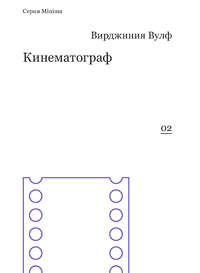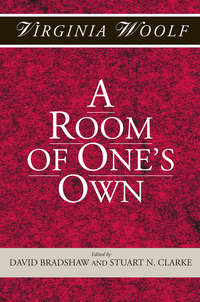
Полная версия
The Voyage Out
“Oh, Rachel, how d’you do,” she said, shaking hands.
“How are you, dear,” said Mr. Ambrose, inclining his forehead to be kissed. His niece instinctively liked his thin angular body, and the big head with its sweeping features, and the acute, innocent eyes.
“Tell Mr. Pepper,” Rachel bade the servant. Husband and wife then sat down on one side of the table, with their niece opposite to them.
“My father told me to begin,” she explained. “He is very busy with the men… You know Mr. Pepper?”
A little man who was bent as some trees are by a gale on one side of them had slipped in. Nodding to Mr. Ambrose, he shook hands with Helen.
“Draughts,” he said, erecting the collar of his coat.
“You are still rheumatic?” asked Helen. Her voice was low and seductive, though she spoke absently enough, the sight of town and river being still present to her mind.
“Once rheumatic, always rheumatic, I fear,” he replied. “To some extent it depends on the weather, though not so much as people are apt to think.”
“One does not die of it, at any rate,” said Helen.
“As a general rule—no,” said Mr. Pepper.
“Soup, Uncle Ridley?” asked Rachel.
“Thank you, dear,” he said, and, as he held his plate out, sighed audibly, “Ah! she’s not like her mother.” Helen was just too late in thumping her tumbler on the table to prevent Rachel from hearing, and from blushing scarlet with embarrassment.
“The way servants treat flowers!” she said hastily. She drew a green vase with a crinkled lip towards her, and began pulling out the tight little chrysanthemums, which she laid on the table-cloth, arranging them fastidiously side by side.
There was a pause.
“You knew Jenkinson, didn’t you, Ambrose?” asked Mr. Pepper across the table.
“Jenkinson of Peterhouse?”
“He’s dead,” said Mr. Pepper.
“Ah, dear!—I knew him—ages ago,” said Ridley. “He was the hero of the punt accident, you remember? A queer card. Married a young woman out of a tobacconist’s, and lived in the Fens—never heard what became of him.”
“Drink—drugs,” said Mr. Pepper with sinister conciseness. “He left a commentary. Hopeless muddle, I’m told.”
“The man had really great abilities,” said Ridley.
“His introduction to Jellaby holds its own still,” went on Mr. Pepper, “which is surprising, seeing how text-books change.”
“There was a theory about the planets, wasn’t there?” asked Ridley.
“A screw loose somewhere, no doubt of it,” said Mr. Pepper, shaking his head.
Now a tremor ran through the table, and a light outside swerved. At the same time an electric bell rang sharply again and again.
“We’re off,” said Ridley.
A slight but perceptible wave seemed to roll beneath the floor; then it sank; then another came, more perceptible. Lights slid right across the uncurtained window. The ship gave a loud melancholy moan.
“We’re off!” said Mr. Pepper. Other ships, as sad as she, answered her outside on the river. The chuckling and hissing of water could be plainly heard, and the ship heaved so that the steward bringing plates had to balance himself as he drew the curtain. There was a pause.
“Jenkinson of Cats—d’you still keep up with him?” asked Ambrose.
“As much as one ever does,” said Mr. Pepper. “We meet annually. This year he has had the misfortune to lose his wife, which made it painful, of course.”
“Very painful,” Ridley agreed.
“There’s an unmarried daughter who keeps house for him, I believe, but it’s never the same, not at his age.”
Both gentlemen nodded sagely as they carved their apples.
“There was a book, wasn’t there?” Ridley enquired.
“There was a book, but there never will be a book,” said Mr. Pepper with such fierceness that both ladies looked up at him.
“There never will be a book, because some one else has written it for him,” said Mr. Pepper with considerable acidity. “That’s what comes of putting things off, and collecting fossils, and sticking Norman arches on one’s pigsties.”
“I confess I sympathise,” said Ridley with a melancholy sigh. “I have a weakness for people who can’t begin.”
“… The accumulations of a lifetime wasted,” continued Mr. Pepper. “He had accumulations enough to fill a barn.”
“It’s a vice that some of us escape,” said Ridley. “Our friend Miles has another work out to-day.”
Mr. Pepper gave an acid little laugh. “According to my calculations,” he said, “he has produced two volumes and a half annually, which, allowing for time spent in the cradle and so forth, shows a commendable industry.”
“Yes, the old Master’s saying of him has been pretty well realised,” said Ridley.
“A way they had,” said Mr. Pepper. “You know the Bruce collection?—not for publication, of course.”
“I should suppose not,” said Ridley significantly. “For a Divine he was—remarkably free.”
“The Pump in Neville’s Row, for example?” enquired Mr. Pepper.
“Precisely,” said Ambrose.
Each of the ladies, being after the fashion of their sex, highly trained in promoting men’s talk without listening to it, could think—about the education of children, about the use of fog sirens in an opera—without betraying herself. Only it struck Helen that Rachel was perhaps too still for a hostess, and that she might have done something with her hands.
“Perhaps—?” she said at length, upon which they rose and left, vaguely to the surprise of the gentlemen, who had either thought them attentive or had forgotten their presence.
“Ah, one could tell strange stories of the old days,” they heard Ridley say, as he sank into his chair again. Glancing back, at the doorway, they saw Mr. Pepper as though he had suddenly loosened his clothes, and had become a vivacious and malicious old ape.
Winding veils round their heads, the women walked on deck. They were now moving steadily down the river, passing the dark shapes of ships at anchor, and London was a swarm of lights with a pale yellow canopy drooping above it. There were the lights of the great theatres, the lights of the long streets, lights that indicated huge squares of domestic comfort, lights that hung high in air. No darkness would ever settle upon those lamps, as no darkness had settled upon them for hundreds of years. It seemed dreadful that the town should blaze for ever in the same spot; dreadful at least to people going away to adventure upon the sea, and beholding it as a circumscribed mound, eternally burnt, eternally scarred. From the deck of the ship the great city appeared a crouched and cowardly figure, a sedentary miser.
Leaning over the rail, side by side, Helen said, “Won’t you be cold?” Rachel replied, “No… How beautiful!” she added a moment later. Very little was visible—a few masts, a shadow of land here, a line of brilliant windows there. They tried to make head against the wind.
“It blows—it blows!” gasped Rachel, the words rammed down her throat. Struggling by her side, Helen was suddenly overcome by the spirit of movement, and pushed along with her skirts wrapping themselves round her knees, and both arms to her hair. But slowly the intoxication of movement died down, and the wind became rough and chilly. They looked through a chink in the blind and saw that long cigars were being smoked in the dining-room; they saw Mr. Ambrose throw himself violently against the back of his chair, while Mr. Pepper crinkled his cheeks as though they had been cut in wood. The ghost of a roar of laughter came out to them, and was drowned at once in the wind. In the dry yellow-lighted room Mr. Pepper and Mr. Ambrose were oblivious of all tumult; they were in Cambridge, and it was probably about the year 1875.
“They’re old friends,” said Helen, smiling at the sight. “Now, is there a room for us to sit in?”
Rachel opened a door.
“It’s more like a landing than a room,” she said. Indeed it had nothing of the shut stationary character of a room on shore. A table was rooted in the middle, and seats were stuck to the sides. Happily the tropical suns had bleached the tapestries to a faded blue-green colour, and the mirror with its frame of shells, the work of the steward’s love, when the time hung heavy in the southern seas, was quaint rather than ugly. Twisted shells with red lips like unicorn’s horns ornamented the mantelpiece, which was draped by a pall of purple plush from which depended a certain number of balls. Two windows opened on to the deck, and the light beating through them when the ship was roasted on the Amazons had turned the prints on the opposite wall to a faint yellow colour, so that “The Coliseum” was scarcely to be distinguished from Queen Alexandra playing with her Spaniels. A pair of wicker arm-chairs by the fireside invited one to warm one’s hands at a grate full of gilt shavings; a great lamp swung above the table—the kind of lamp which makes the light of civilisation across dark fields to one walking in the country.
“It’s odd that every one should be an old friend of Mr. Pepper’s,” Rachel started nervously, for the situation was difficult, the room cold, and Helen curiously silent.
“I suppose you take him for granted?” said her aunt.
“He’s like this,” said Rachel, lighting on a fossilised fish in a basin, and displaying it.
“I expect you’re too severe,” Helen remarked.
Rachel immediately tried to qualify what she had said against her belief.
“I don’t really know him,” she said, and took refuge in facts, believing that elderly people really like them better than feelings. She produced what she knew of William Pepper. She told Helen that he always called on Sundays when they were at home; he knew about a great many things—about mathematics, history, Greek, zoology, economics, and the Icelandic Sagas. He had turned Persian poetry into English prose, and English prose into Greek iambics; he was an authority upon coins; and—one other thing—oh yes, she thought it was vehicular traffic.
He was here either to get things out of the sea, or to write upon the probable course of Odysseus, for Greek after all was his hobby.
“I’ve got all his pamphlets,” she said. “Little pamphlets. Little yellow books.” It did not appear that she had read them.
“Has he ever been in love?” asked Helen, who had chosen a seat.
This was unexpectedly to the point.
“His heart’s a piece of old shoe leather,” Rachel declared, dropping the fish. But when questioned she had to own that she had never asked him.
“I shall ask him,” said Helen.
“The last time I saw you, you were buying a piano,” she continued. “Do you remember—the piano, the room in the attic, and the great plants with the prickles?”
“Yes, and my aunts said the piano would come through the floor, but at their age one wouldn’t mind being killed in the night?” she enquired.
“I heard from Aunt Bessie not long ago,” Helen stated. “She is afraid that you will spoil your arms if you insist upon so much practising.”
“The muscles of the forearm—and then one won’t marry?”
“She didn’t put it quite like that,” replied Mrs. Ambrose.
“Oh, no—of course she wouldn’t,” said Rachel with a sigh.
Helen looked at her. Her face was weak rather than decided, saved from insipidity by the large enquiring eyes; denied beauty, now that she was sheltered indoors, by the lack of colour and definite outline. Moreover, a hesitation in speaking, or rather a tendency to use the wrong words, made her seem more than normally incompetent for her years. Mrs. Ambrose, who had been speaking much at random, now reflected that she certainly did not look forward to the intimacy of three or four weeks on board ship which was threatened. Women of her own age usually boring her, she supposed that girls would be worse. She glanced at Rachel again. Yes! how clear it was that she would be vacillating, emotional, and when you said something to her it would make no more lasting impression than the stroke of a stick upon water. There was nothing to take hold of in girls—nothing hard, permanent, satisfactory. Did Willoughby say three weeks, or did he say four? She tried to remember.
At this point, however, the door opened and a tall burly man entered the room, came forward and shook Helen’s hand with an emotional kind of heartiness, Willoughby himself, Rachel’s father, Helen’s brother-in-law. As a great deal of flesh would have been needed to make a fat man of him, his frame being so large, he was not fat; his face was a large framework too, looking, by the smallness of the features and the glow in the hollow of the cheek, more fitted to withstand assaults of the weather than to express sentiments and emotions, or to respond to them in others.
“It is a great pleasure that you have come,” he said, “for both of us.”
Rachel murmured in obedience to her father’s glance.
“We’ll do our best to make you comfortable. And Ridley. We think it an honour to have charge of him. Pepper’ll have some one to contradict him—which I daren’t do. You find this child grown, don’t you? A young woman, eh?”
Still holding Helen’s hand he drew his arm round Rachel’s shoulder, thus making them come uncomfortably close, but Helen forbore to look.
“You think she does us credit?” he asked.
“Oh yes,” said Helen.
“Because we expect great things of her,” he continued, squeezing his daughter’s arm and releasing her. “But about you now.” They sat down side by side on the little sofa. “Did you leave the children well? They’ll be ready for school, I suppose. Do they take after you or Ambrose? They’ve got good heads on their shoulders, I’ll be bound?”
At this Helen immediately brightened more than she had yet done, and explained that her son was six and her daughter ten. Everybody said that her boy was like her and her girl like Ridley. As for brains, they were quick brats, she thought, and modestly she ventured on a little story about her son,—how left alone for a minute he had taken the pat of butter in his fingers, run across the room with it, and put it on the fire—merely for the fun of the thing, a feeling which she could understand.
“And you had to show the young rascal that these tricks wouldn’t do, eh?”
“A child of six? I don’t think they matter.”
“I’m an old-fashioned father.”
“Nonsense, Willoughby; Rachel knows better.”
Much as Willoughby would doubtless have liked his daughter to praise him she did not; her eyes were unreflecting as water, her fingers still toying with the fossilised fish, her mind absent. The elder people went on to speak of arrangements that could be made for Ridley’s comfort—a table placed where he couldn’t help looking at the sea, far from boilers, at the same time sheltered from the view of people passing. Unless he made this a holiday, when his books were all packed, he would have no holiday whatever; for out at Santa Marina Helen knew, by experience, that he would work all day; his boxes, she said, were packed with books.
“Leave it to me—leave it to me!” said Willoughby, obviously intending to do much more than she asked of him. But Ridley and Mr. Pepper were heard fumbling at the door.
“How are you, Vinrace?” said Ridley, extending a limp hand as he came in, as though the meeting were melancholy to both, but on the whole more so to him.
Willoughby preserved his heartiness, tempered by respect. For the moment nothing was said.
“We looked in and saw you laughing,” Helen remarked. “Mr. Pepper had just told a very good story.”
“Pish. None of the stories were good,” said her husband peevishly.
“Still a severe judge, Ridley?” enquired Mr. Vinrace.
“We bored you so that you left,” said Ridley, speaking directly to his wife.
As this was quite true Helen did not attempt to deny it, and her next remark, “But didn’t they improve after we’d gone?” was unfortunate, for her husband answered with a droop of his shoulders, “If possible they got worse.”
The situation was now one of considerable discomfort for every one concerned, as was proved by a long interval of constraint and silence. Mr. Pepper, indeed, created a diversion of a kind by leaping on to his seat, both feet tucked under him, with the action of a spinster who detects a mouse, as the draught struck at his ankles. Drawn up there, sucking at his cigar, with his arms encircling his knees, he looked like the image of Buddha, and from this elevation began a discourse, addressed to nobody, for nobody had called for it, upon the unplumbed depths of ocean. He professed himself surprised to learn that although Mr. Vinrace possessed ten ships, regularly plying between London and Buenos Aires, not one of them was bidden to investigate the great white monsters of the lower waters.
“No, no,” laughed Willoughby, “the monsters of the earth are too many for me!”
Rachel was heard to sigh, “Poor little goats!”
“If it weren’t for the goats there’d be no music, my dear; music depends upon goats,” said her father rather sharply, and Mr. Pepper went on to describe the white, hairless, blind monsters lying curled on the ridges of sand at the bottom of the sea, which would explode if you brought them to the surface, their sides bursting asunder and scattering entrails to the winds when released from pressure, with considerable detail and with such show of knowledge, that Ridley was disgusted, and begged him to stop.
From all this Helen drew her own conclusions, which were gloomy enough. Pepper was a bore; Rachel was an unlicked girl, no doubt prolific of confidences, the very first of which would be: “You see, I don’t get on with my father.” Willoughby, as usual, loved his business and built his Empire, and between them all she would be considerably bored. Being a woman of action, however, she rose, and said that for her part she was going to bed. At the door she glanced back instinctively at Rachel, expecting that as two of the same sex they would leave the room together. Rachel rose, looked vaguely into Helen’s face, and remarked with her slight stammer, “I’m going out to t-t-triumph in the wind.”
Mrs. Ambrose’s worst suspicions were confirmed; she went down the passage lurching from side to side, and fending off the wall now with her right arm, now with her left; at each lurch she exclaimed emphatically, “Damn!”
CHAPTER 2
Uncomfortable as the night, with its rocking movement, and salt smells, may have been, and in one case undoubtedly was, for Mr. Pepper had insufficient clothes upon his bed, the breakfast next morning wore a kind of beauty. The voyage had begun, and had begun happily with a soft blue sky, and a calm sea. The sense of untapped resources, things to say as yet unsaid, made the hour significant, so that in future years the entire journey perhaps would be represented by this one scene, with the sound of sirens hooting in the river the night before, somehow mixing in.
The table was cheerful with apples and bread and eggs. Helen handed Willoughby the butter, and as she did so cast her eye on him and reflected, “And she married you, and she was happy, I suppose.”
She went off on a familiar train of thought, leading on to all kinds of well-known reflections, from the old wonder, why Theresa had married Willoughby?
“Of course, one sees all that,” she thought, meaning that one sees that he is big and burly, and has a great booming voice, and a fist and a will of his own; “but—” here she slipped into a fine analysis of him which is best represented by one word, “sentimental,” by which she meant that he was never simple and honest about his feelings. For example, he seldom spoke of the dead, but kept anniversaries with singular
pomp. She suspected him of nameless atrocities with regard to his daughter, as indeed she had always suspected him of bullying his wife. Naturally she fell to comparing her own fortunes with the fortunes of her friend, for Willoughby’s wife had been perhaps the one woman Helen called friend, and this comparison often made the staple of their talk. Ridley was a scholar, and Willoughby was a man of business. Ridley
was bringing out the third volume of Pindar when Willoughby was launching his first ship. They built a new factory the very year the commentary on Aristotle—was it?—appeared at the University Press. “And Rachel,” she looked at her, meaning, no doubt, to decide the argument, which was otherwise too evenly balanced, by declaring that Rachel was not comparable to her own children. “She really might be six years old,” was all she said, however, this judgment referring to the smooth unmarked outline of the girl’s face, and not condemning her otherwise, for if Rachel were ever to think, feel, laugh, or express herself, instead of dropping milk from a height as though to see what kind of drops it made, she might be interesting though never exactly pretty. She was like her mother, as the image in a pool on a still summer’s day is like the vivid flushed face that hangs over it.
Meanwhile Helen herself was under examination, though not from either of her victims. Mr. Pepper considered her; and his meditations, carried on while he cut his toast into bars and neatly buttered them, took him through a considerable stretch of autobiography. One of his penetrating glances assured him that he was right last night in judging that Helen was beautiful. Blandly he passed her the jam. She was talking nonsense, but not worse nonsense than people usually do talk at breakfast, the cerebral circulation, as he knew to his cost, being apt to give trouble at that hour. He went on saying “No” to her, on principle, for he never yielded to a woman on account of her sex. And here, dropping his eyes to his plate, he became autobiographical. He had not married himself for the sufficient reason that he had never met a woman who commanded his respect. Condemned to pass the susceptible years of youth in a railway station in Bombay, he had seen only coloured women, military women, official women; and his ideal was a woman who could read Greek, if not Persian, was irreproachably fair in the face, and able to understand the small things he let fall while undressing. As it was he had contracted habits of which he was not in the least ashamed. Certain odd minutes every day went to learning things by heart; he never took a ticket without noting the number; he devoted January to Petronius, February to Catullus, March to the Etruscan vases perhaps; anyhow he had done good work in India, and there was nothing to regret in his life except the fundamental defects which no wise man regrets, when the present is still his. So concluding he looked up suddenly and smiled. Rachel caught his eye.
“And now you’ve chewed something thirty-seven times, I suppose?” she thought, but said politely aloud, “Are your legs troubling you to-day, Mr. Pepper?”
“My shoulder blades?” he asked, shifting them painfully. “Beauty has no effect upon uric acid that I’m aware of,” he sighed, contemplating the round pane opposite, through which the sky and sea showed blue. At the same time he took a little parchment volume from his pocket and laid it on the table. As it was clear that he invited comment, Helen asked him the name of it. She got the name; but she got also a disquisition upon the proper method of making roads. Beginning with the Greeks, who had, he said, many difficulties to contend with, he continued with the Romans, passed to England and the right method, which speedily became the wrong method, and wound up with such a fury of denunciation directed against the road-makers of the present day in general, and the road-makers of Richmond Park in particular, where Mr. Pepper had the habit of cycling every morning before breakfast, that the spoons fairly jingled against the coffee cups, and the insides of at least four rolls mounted in a heap beside Mr. Pepper’s plate.
“Pebbles!” he concluded, viciously dropping another bread pellet upon the heap. “The roads of England are mended with pebbles! ‘With the first heavy rainfall,’ I’ve told ’em, ‘your road will be a swamp.’ Again and again my words have proved true. But d’you suppose they listen to me when I tell ’em so, when I point out the consequences, the consequences to the public purse, when I recommend ’em to read Coryphaeus? No, Mrs. Ambrose, you will form no just opinion of the stupidity of mankind until you have sat upon a Borough Council!” The little man fixed her with a glance of ferocious energy.









